You might feel safe at home, but your gadgets have other plans.

There’s something unnerving about being watched in your own home—even if it’s just your smart toaster keeping tabs. While these devices promise convenience, security, and futuristic cool, they also open the door to silent observation and data collection most of us never signed up for. And the scariest part? The more “connected” you are, the easier it is for companies, hackers, and even your fridge to peer into your personal life without you realizing it.
We’ve invited cameras, microphones, and listening software into our living rooms, bedrooms, and kitchens—and they’re not just sitting there idle. Smart devices are constantly collecting info, learning your habits, syncing with other tech, and quietly sharing what they know. You don’t have to be a conspiracy theorist to be concerned. This isn’t about tinfoil hats—it’s about privacy, autonomy, and understanding how your own home might be the least private place you spend your time. If you think you’re just streaming music, adjusting the thermostat, or asking for a weather update, think again. Here are 10 unsettling ways your smart devices are spying on you, often without so much as a warning light blinking.
1. Your smart TV is watching more than just your shows.

That sleek flat screen hanging on your wall isn’t just a window into the latest Netflix drama—it’s also watching you. Many smart TVs come with built-in cameras and microphones that remain on unless you disable them manually. Voice commands and facial recognition make things feel futuristic, but they also open the door to recording your conversations or tracking who’s in the room. If you’ve ever talked about a product and seen it pop up in your ads shortly after, your TV may have been eavesdropping, according to James K. Willcox at Consumer Reports.
Even more invasive is the software that monitors your viewing habits. Manufacturers often track what you watch, how long you watch it, and even how you interact with the remote. This data gets packaged and sold to advertisers who want to target you with laser precision. Some TVs even scan nearby devices and networks, pulling in more data from your environment. So while you’re binge-watching your favorite series, your TV might be binge-watching you right back—and then sharing your data with a lineup of third parties you’ve never heard of.
2. Voice assistants are always listening—even when you’re not talking to them.

Alexa, Siri, and Google Assistant don’t wait for you to say the magic word to start listening. They’re always tuned in, quietly processing sounds in the background and waiting to recognize a command, as reported by Dorian Lynskey at The Guardian. While manufacturers claim they only store recordings after hearing a trigger word, leaked internal reports and tech audits have revealed otherwise. Accidental activations happen more often than people realize, recording private conversations and sending them to cloud servers for analysis.
And it’s not just machines doing the listening. In some cases, real human contractors review these recordings to “improve the service,” meaning strangers could hear intimate moments, arguments, or awkward background chatter. That’s a level of surveillance most people didn’t expect when they wanted a hands-free way to play music or set a timer. The reality is, having an always-on mic in your kitchen or bedroom means you’ve essentially volunteered your personal space for constant monitoring—and that’s a lot to give up just to ask about the weather.
3. Smart thermostats are mapping your routines and movements.

Your smart thermostat may seem harmless—just a helpful gadget that adjusts your heat or AC to save energy. But it’s also quietly building a profile of your daily behavior, as stated by Roberto Yus at The Conversation. These devices learn your comings and goings, track when you’re usually home or away, and even sense when someone’s in the room. They can tell when you go to bed, when you wake up, and how long your house stays empty on weekdays versus weekends.
Over time, this information becomes a detailed log of your personal schedule. That’s valuable data for companies who want to market to your lifestyle—or worse, a vulnerability for someone trying to break into your home. If a hacker gets access to your thermostat, they don’t just control your indoor climate—they potentially know the best times to strike when you’re not around. The convenience of automation often overshadows the creepy factor of your device keeping tabs on your every move, but once you know what it’s collecting, you might think twice before installing one in your hallway.
4. Security cameras can be turned against you by hackers.
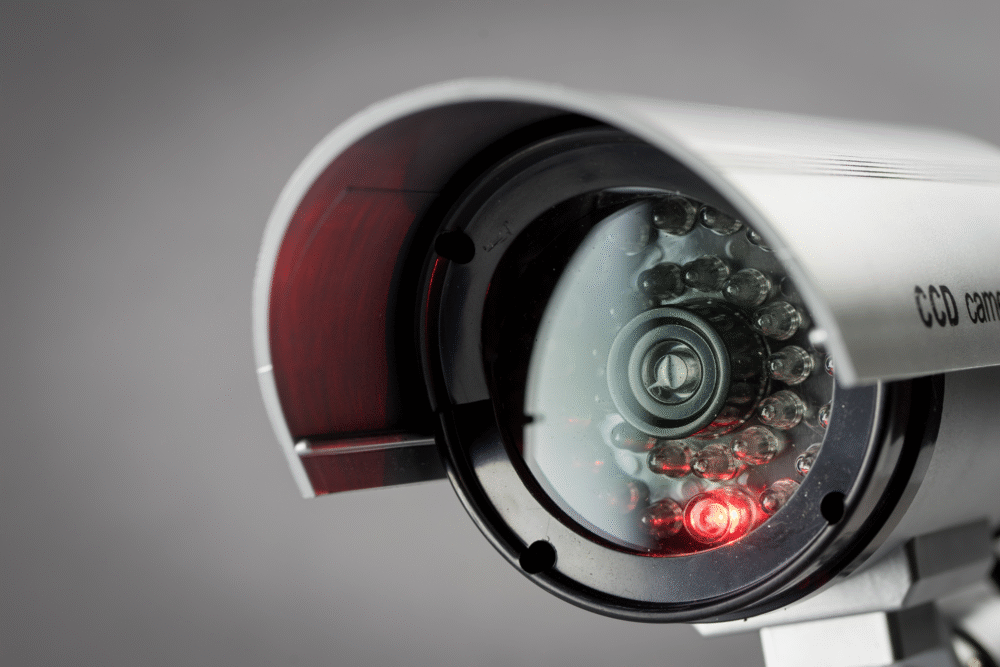
Ironically, the very devices meant to protect your home can become your biggest privacy threat. Internet-connected security cameras, especially cheaper models without strong encryption, are a favorite target for hackers. Once someone gains access, they can watch live footage, record video, and in some cases, even speak through two-way audio features. That’s not just disturbing—it’s downright dangerous, especially when these cameras are placed in bedrooms or nurseries.
What’s worse is that many users never change the default login settings on their security devices. This makes unauthorized access shockingly easy. Some hacking groups have even compiled live camera feeds from homes around the world and shared them online. These are not hypotheticals—they’re documented breaches. You thought you were keeping an eye on your front porch, but someone across the globe might be watching you eat dinner or tuck your kids into bed. The line between security and surveillance gets blurry when control slips out of your hands.
5. Smart speakers are turning your home into a data mine.
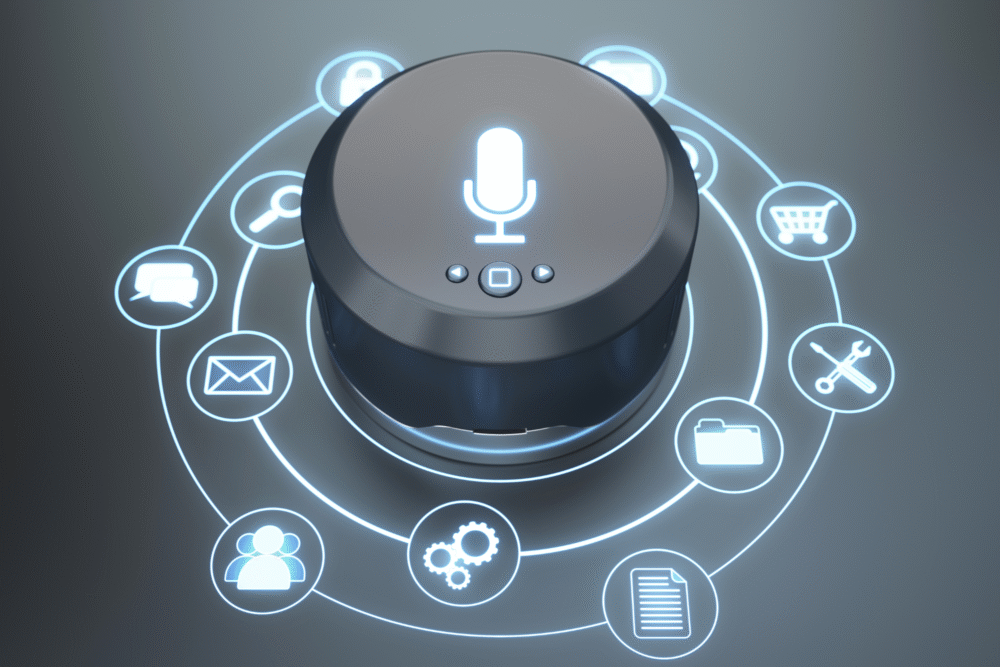
Your smart speaker may sit quietly on your shelf, but it’s a goldmine of behavioral data. Every interaction—commands, questions, music preferences—feeds into a growing profile of your personality, habits, and interests. These devices don’t just process your voice; they analyze it, categorize it, and connect it to other online behavior. They know your morning routine, favorite playlists, how often you order food, and what you’re curious about at midnight.
And it’s not just about what you say. Some smart speakers can detect changes in tone or ambient sounds, using that data to guess emotional states or identify who’s in the room. This info is incredibly valuable to marketers and platform developers, which is why it’s often stored, aggregated, and monetized. Even if you’re okay with some data sharing, most people have no idea how much of their daily life is being collected and processed. That low-profile gadget is doing more than keeping you entertained—it’s mapping the rhythms of your life for anyone willing to pay for the insights.
6. Smart appliances are silently tracking your usage patterns.
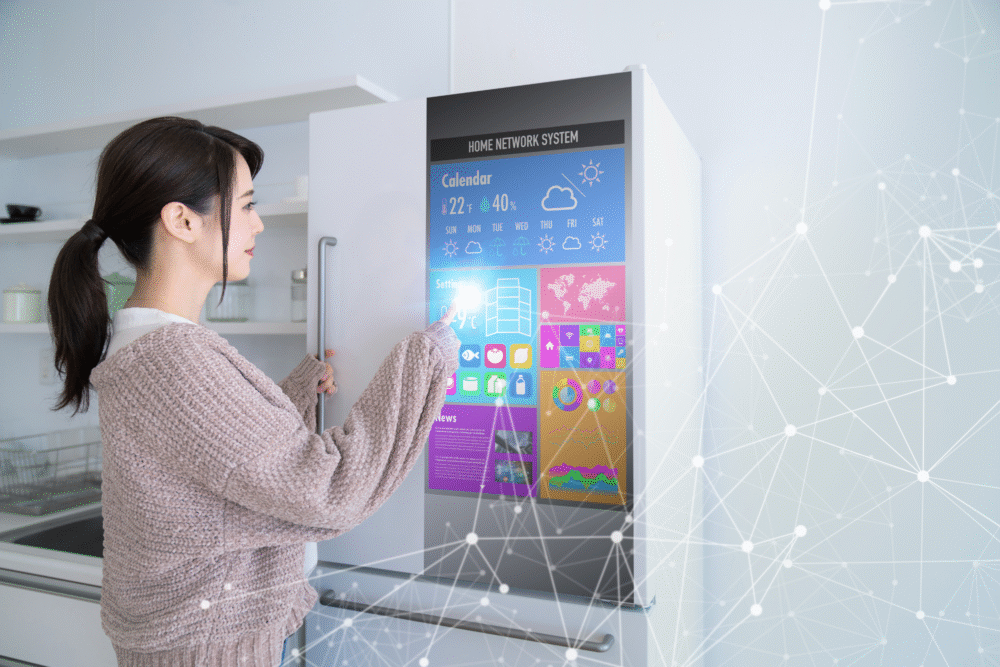
You probably never suspected your fridge or washing machine of being nosy, but smart appliances come loaded with sensors and connectivity that make data collection effortless. When you open the fridge, how often you run your dishwasher, or which washing cycle you use most—every action is logged and transmitted. This data is used to optimize performance, sure, but it’s also sold to third parties who want to know more about your habits.
Over time, your kitchen becomes a surveillance hub. Your appliances start to learn when you’re likely home, how many people live in the house, and even what you eat based on grocery restocking patterns. The more “helpful” the features, the more detailed the tracking becomes. You might get alerts for expired milk, but that convenience comes at the cost of your privacy. When your daily life is broken down into timestamps and usage graphs, the home stops feeling like a personal sanctuary and starts to feel more like a lab—where you’re the one under observation.
7. Baby monitors are vulnerable windows into your home.
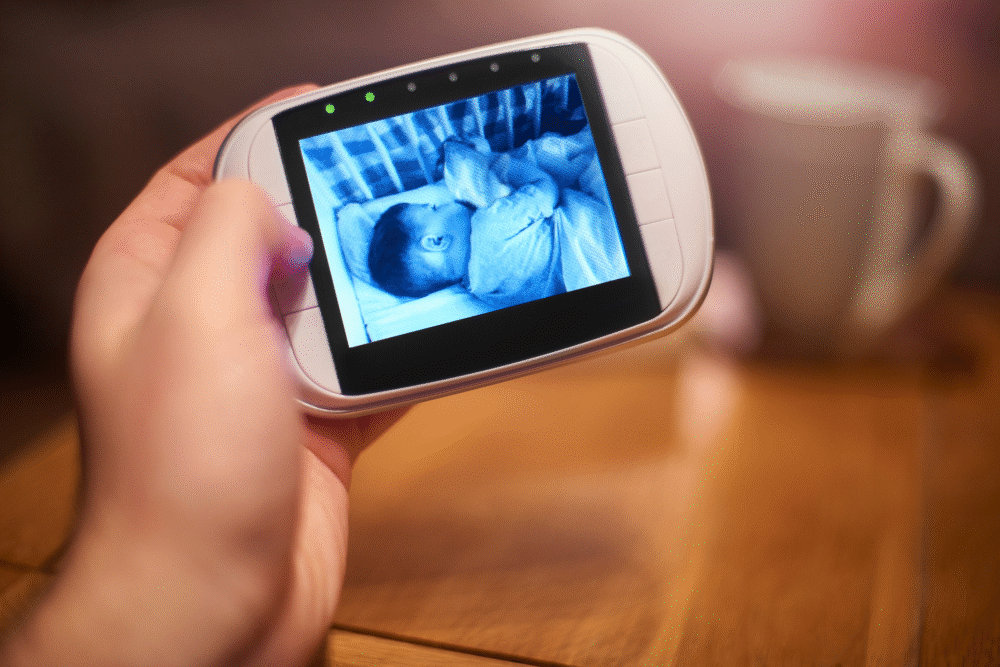
Modern baby monitors often come with high-resolution cameras, night vision, two-way talk, and Wi-Fi connectivity—all of which open up serious risks. These devices are shockingly easy to hack, especially if the default passwords are left unchanged. Once accessed, a stranger can listen in, speak through the speaker, or even watch your child sleep. For any parent, that’s a terrifying invasion that turns a safety device into a source of anxiety.
Even if the device isn’t hacked, many brands store recordings on cloud servers that could be breached or mishandled. Some even use AI to monitor crying patterns or temperature changes, building yet another layer of data about your private home life. While these features can feel helpful and high-tech, they also invite constant monitoring that doesn’t always feel consensual. When something designed to protect your most vulnerable loved ones becomes a potential surveillance tool, it raises hard questions about where we draw the line between smart and safe.
8. Fitness trackers are broadcasting more than just your steps.
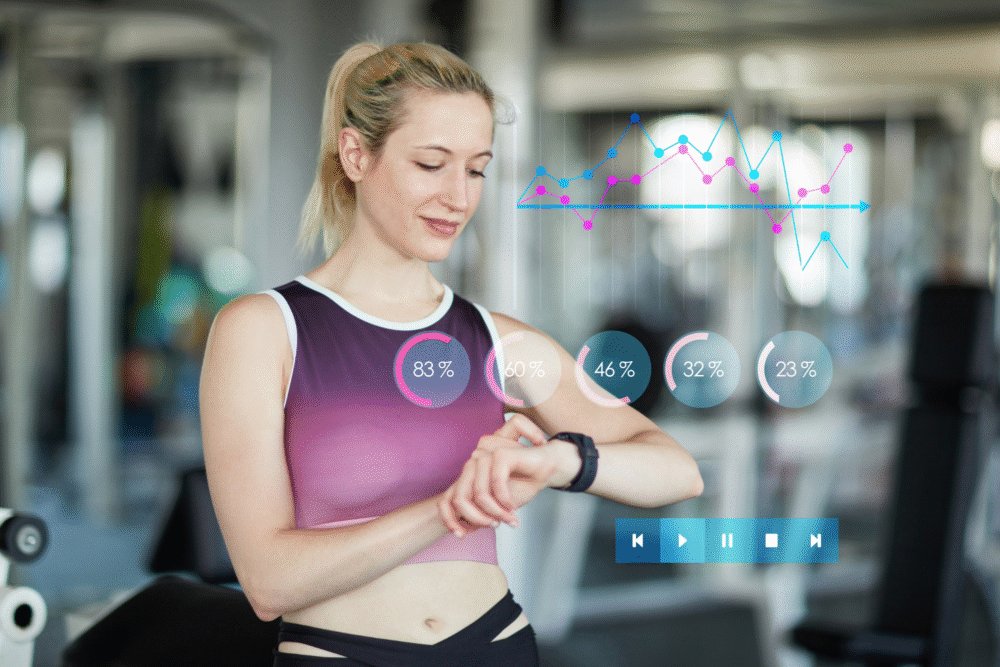
Your smartwatch or fitness band does more than count your steps or calories—it’s collecting a stream of intimate data about your body and routine. Heart rate, sleep cycles, movement patterns, and even GPS locations can all be tracked and shared. While most people assume this info stays between them and the app, the truth is that it’s often shared with health companies, insurance providers, or marketers—especially if you didn’t read the fine print.
It doesn’t take much for this kind of data to become a profile of your physical and emotional well-being. If you’re stressed, inactive, or sleep-deprived, your tracker knows—and so might companies that want to sell you supplements, push ads, or evaluate your lifestyle. It’s a slippery slope between helpful wellness support and invasive surveillance. You might feel like you’re in control of your health, but your tracker is quietly drawing conclusions about your lifestyle that can be used for decisions far beyond your morning jog.
9. Smart doorbells can compromise your neighbors’ privacy too.
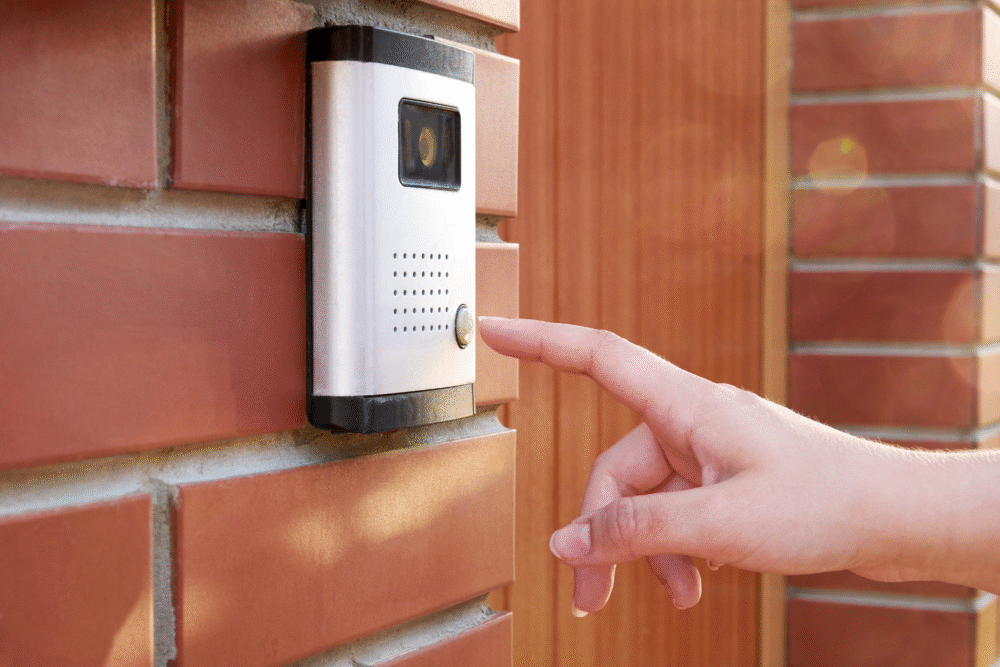
Devices like Ring or Nest doorbells don’t just record your doorstep—they often capture footage of sidewalks, streets, and even your neighbor’s front yard. While they can be helpful in deterring porch pirates, they also introduce a layer of community surveillance that not everyone has agreed to. Some doorbells are even integrated with law enforcement systems, automatically sharing footage without a warrant or your neighbor’s consent.
That means your guests, delivery drivers, and passersby might be recorded without knowing it—and in some cases, those recordings could be used in investigations or uploaded to cloud databases. The ethical implications are murky, especially when your personal device becomes a tool for third-party surveillance. Even if you have good intentions, your doorbell camera might be collecting footage that others find intrusive or exploitative. Surveillance isn’t just about what happens inside your home—sometimes the devices watching your front step reach a little too far.
10. Smart light bulbs are tracking more than your brightness preferences.
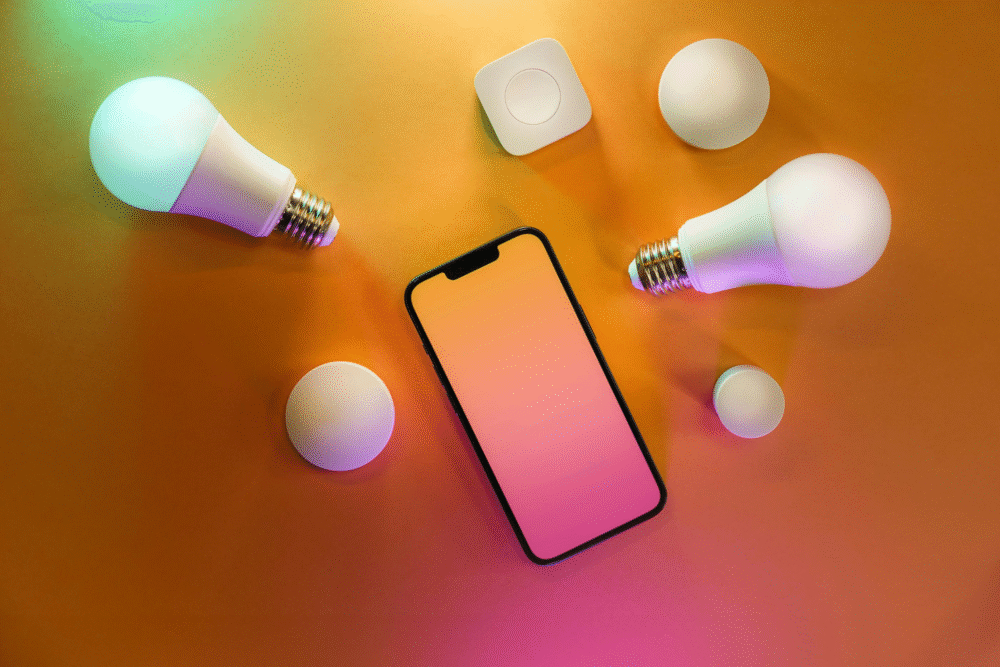
Yes, even your light bulbs can spy on you. Smart lighting systems are often connected to mobile apps, voice assistants, and home networks, which means they have access to a surprising amount of data. These bulbs can track when you’re home, what rooms you use most, and how your lighting patterns change throughout the day. Some even sync with music or react to movement, adding yet another dimension to what they observe.
The issue isn’t just that they respond to your needs—it’s what happens to the data they collect. That information can be used to infer your schedule, habits, and even your mood. In a well-connected smart home, lighting data becomes one more puzzle piece in building a complete picture of your daily life. It’s subtle, easy to ignore, and often overlooked when people think about surveillance. But when even your light bulbs know your bedtime routine, it might be time to reevaluate just how smart you really want your home to be.
